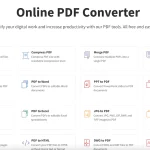
Having a reliable UK business phone system is critical for any successful enterprise. Should companies switch to a VoIP phone system or stick with a traditional landline system?
There’s an ongoing debate on which performs better for UK businesses. I’ll analyze the key differences, advantages, and challenges of both options to help UK enterprises make an informed decision.
Importance of a reliable phone system for businesses
A phone system is the lifeline for any enterprise’s communications. Without strong uptime and call quality, businesses risk losing sales, customer trust, and productivity.
As found in a 2022 Ofcom report, 61% of UK enterprises saw their phone system as highly essential for operations.
Debate between VoIP and traditional systems
VoIP (Voice over Internet Protocol) phone systems are quickly gaining popularity with their flexibility and advanced features. However, traditional landline systems are still used by many enterprises owing to their proven reliability. There are good arguments on both sides. My goal is to explore the key pros and cons of each option.
With conflicting opinions, it can get confusing for enterprises to pick the right phone system. My 10+ years of telecom experience can guide you through the critical factors. In this post, we’ll dive deep into VoIP and traditional landline systems in the UK context to help identify the best match for your enterprise’s needs.
Understanding VoIP
VoIP phone systems work by converting voice data into digital packets that get transmitted over the internet. So instead of using copper phone lines, calls happen over secure internet connections.
Advantages:
Cost-effectiveness – VoIP systems involve lower costs by around 40% compared to traditional landlines. Calls made over the internet skip taxes and surcharges, creating major long-term savings.
Flexibility and scalability – With software-based systems, it’s seamless to add extensions or features. As businesses grow, enterprise VoIP solutions can scale up capacities on demand.
Advanced features – VoIP unlocks powerful communication features like auto attendants, call forwarding, conference bridges, call recording, and more.
Challenges:
Dependence on Internet connectivity – Any internet outage or disruption can lead to call quality issues or even dropped calls. Reliable high-speed broadband is essential.
Security concerns – Like any internet-based system, VoIP networks are vulnerable to cyber-attacks. Proper firewalls and encryption must safeguard networks.
Exploring Traditional Phone Systems
Traditional private branch exchange (PBX) phone systems work over the public switched telephone network (PSTN), relying on copper phone lines and analogue signals for communication.
Advantages:
Reliability – Landline systems offer proven stability as they use dedicated infrastructure independent of internet connectivity.
Established infrastructure – Traditional telephony networks have matured over decades into robust systems with strong availability across regions.
Call quality – Analog signals produce noticeably superior call quality and clarity compared to early VoIP solutions.
Drawbacks:
Higher costs – Physical PBX hardware, call charges, and maintenance lead to substantially higher costs. Expenses can be 50%+ higher over time.
Limited flexibility and scalability – Adding new phone extensions or locations requires expensive hardware changes. Scalability requires large upfront investments.
Lack of modern features – Basic PBX systems need the powerful productivity features standard in most VoIP platforms.
Considerations for UK Enterprises
- Regulatory compliance and legal considerations – Stay compliant with telecom regulations like Ofcom’s General Conditions of Entitlement. Seek legal counsel before signing provider contracts.
- Existing infrastructure and compatibility – Will legacy analogue phones and fax machines work with the new system? Avoid costly replacements by assessing compatibility.
- Budget constraints – What spending limits are realistic? Forecast long-term costs in addition to upfront investments for full visibility.
- Staff training and user adoption – Simple interfaces and self-service admin reduce reliance on IT teams. Embrace intuitive designs for maximum staff uptake of the new system.
Final Thoughts
The right business phone system balances reliability, capabilities, and value. I recommend VoIP for most UK enterprises today owing to substantial cost savings and cutting-edge unified communications features. However, traditional systems do outperform on-call quality and business continuity. Assess your specific priorities, infrastructure, and plans before deciding.
At Your Comms Group, expertise lies in guiding you to the most suitable business phone system. They understand the importance of comparing options, ensuring maximum uptime, and providing personalised customer service, setting us apart from other major providers.







